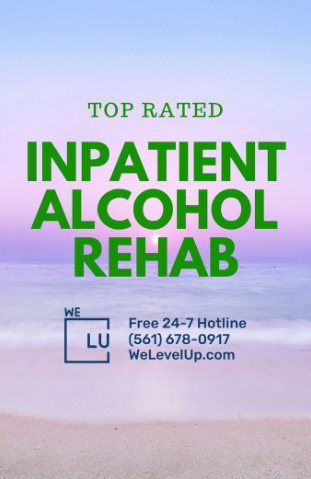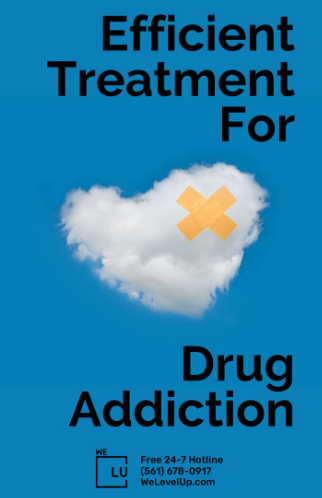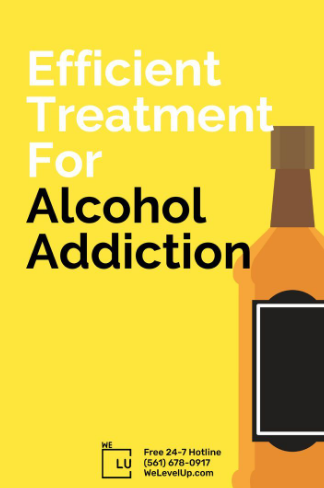What is a Long-Term Inpatient Rehab Center?
Long term rehabilitation in inpatient rehab, also known as long-term residential rehab, is a treatment that generally takes place over three to 12 months. Patients reside in a treatment facility and are under 24-hour care during this period. Long term rehabilitation usually begins with detoxification (detox) in a medically supervised detox program. These provide professional support and medical monitoring while the individual flushes harmful toxins from their body gained during substance abuse. Detox is the initial, physical part of treatment. Once this stage is complete, the individual most often moves to the next care level.
Long-term rehabilitation is recommended for treating substance addiction. According to the National Institute on Drug Abuse (NIDA) [1], “Research indicates that most addicted individuals need at least 3 months in treatment to significantly reduce or stop their drug use and that the best outcomes occur with longer durations of treatment.” Moreover, the NIDA states that young populations usually benefit from continuing care following treatment, such as drug use monitoring, follow-up home visits, and support group participation. Patients are more likely to gain advantages the longer they remain in long term rehabilitation treatment. For instance, those who attend drug rehab for 9 to 12 months are more likely to gain significant overall self-sufficiency, decision-making skills, and stress management.
Of course, each person has different therapy and treatment demands. The minimal amount of time spent in treatment will depend on the degree of addiction and any underlying disorders that may be present. Substance addiction frequently co-occurs with other mental health conditions, such as anxiety or depression. Because of their complexity, co-occurring disorders typically require professional and special care and long term rehabilitation and support.

Get Help. Get Better. Get Your Life Back.
Searching for Accredited Drug and Alcohol Rehab Centers Near You?
Even if you have failed previously and relapsed, or are in the middle of a difficult crisis, we stand ready to support you. Our trusted behavioral health specialists will not give up on you. When you feel ready or just want someone to speak to about therapy alternatives to change your life call us. Even if we cannot assist you, we will lead you to wherever you can get support. There is no obligation. Call our hotline today.
(844) 597-1011Long-Term Drug and Alcohol Treatment Programs
A substance abuse treatment program is normally divided into different stages, typically consisting of medically assisted detoxification, rehabilitation therapy, and aftercare. In addition, other treatment approaches are offered in either an outpatient or inpatient treatment facility. Though treatment duration will vary, on average outpatient rehab facilities offer relatively short-term substance abuse treatment. In contrast, inpatient or residential treatment centers can accommodate individual needs for long term rehabilitation.
Long term rehabilitation facilities help an individual address underlying issues related to their addiction beyond drug and alcohol detox and withdrawal. They typically offer a structured environment that may include drug counseling, behavioral therapies (such as cognitive behavioral therapy, dialectical behavior therapy, and solution-based therapy), group therapy, and other services to help them remain abstinent and prepare for daily life after treatment.
Long-term residential rehab treatment programs are recommended for individuals exhibiting recovery challenges while participating in a more standard, shorter-term inpatient or residential rehab program. In addition, individuals who encounter multiple relapses and other difficulties after completing one of these inpatient treatment programs would benefit from long-term alcohol and drug rehabilitation.
One form of long-term recovery stems from the therapeutic community that tailors treatment for specific demographic groups, such as gender group treatment and women’s depression treatment, and men’s mental health stigma treatment programs.

Get Your Life Back
Find Hope & Recovery. Get Safe Comfortable Detox, Addiction Rehab & Dual Diagnosis High-Quality Care.
Hotline(844) 597-1011Long-Term Residential Inpatient Treatment Process
While each individual in treatment will have specific long- and short-term goals, all specialized long term rehabilitation treatment programs have three similar generalized goals.
1. Reducing substance abuse or achieving a substance-free life.
For most individuals, the primary goal of treatment is the attainment and maintenance of abstinence. However, this may take multiple attempts and failures at “controlled” use before sufficient motivation is mobilized. Until the individual accepts that abstinence is crucial, the treatment program usually tries to minimize the effects of continuous use and abuse through:
- Education
- Counseling
- Self-help groups that stress-reducing risky behavior
- Building new relationships with drug-free friends
- Changing recreational activities and lifestyle patterns to convince the person of their responsibility for becoming abstinent.
2. Maximizing multiple aspects of life functioning
Becoming drug- or alcohol-free, however, is only the start. Most individuals in a long term rehabilitation center have complex and multiple problems in many aspects of living, including mental health disorders and medical illnesses, disrupted relationships, deteriorated or underdeveloped vocational or social skills, impaired performance in school or at work, and financial or legal troubles. These issues may have contributed to the initial development of a substance use problem or resulted from the disorder.
Treatment programs must make substantial efforts to assist individuals in alleviating these problems so that they can adopt responsible and appropriate roles in society. This requires maximizing physical health, treating independent mental health disorders, improving cognitive functioning, addressing relationships or other family and marital issues, resolving legal and financial problems, and developing or improving necessary vocational and educational skills. Many long term rehabilitation programs also help individuals explore spiritual issues and find suitable recreational activities.

3. Preventing or reducing the frequency and severity of relapse
Increasingly, long term rehabilitation treatment programs are also preparing individuals for the possibility of relapse and helping them avoid and understand dangerous “triggers” of resumed drug use or drinking. Individuals are taught how to identify cues, handle cravings, develop contingency plans for handling stressful situations, and what to do if there is a “slip.” Relapse prevention is crucial as a long term rehabilitation treatment goal in an era of shortened formal, intensive intervention and more emphasis on aftercare following discharge.
In a long term rehabilitation center, the individual undergoes a variety of long-term therapeutic techniques, including:
- Pharmacotherapies discourage continuing alcohol or other drug use, suppress withdrawal symptoms, diminish or block cravings or euphoric effects, replace an illicit drug with prescribed medication, or treat coexisting psychiatric problems.
- Psychosocial or psychological interventions, which modify destructive interpersonal feelings, attitudes, and behaviors through individual, group, marital, or family therapy.
- Behavioral therapies, which alleviate or extinguish undesirable behaviors and encourage desired ones.
- Self-help groups for mutual support and encouragement to become or remain abstinent before, during, and after formal treatment.
First-class Facilities & Amenities
World-class High-Quality Addiction & Mental Health Rehabilitation Treatment
Rehab Centers TourRenowned Addiction Centers. Serene Private Facilities. Inpatient rehab programs vary.
Addiction Helpline(844) 597-1011Proven recovery success experience, backed by a Team w/ History of:
15+
Years of Unified Experience
100s
5-Star Reviews Across Our Centers
10K
Recovery Success Stories Across Our Network
- Low Patient to Therapist Ratio
- Onsite Medical Detox Center
- Comprehensive Dual-Diagnosis Treatment
- Complimentary Family & Alumni Programs
- Coaching, Recovery & Personal Development Events
Who Requires Rehabilitation and Long Term Care?
If a person has a severe substance use disorder or has been unsuccessful with previous attempts to stop using substances, he or she may benefit from long term rehabilitation. There are a variety of substances of abuse and mental health disorder treatment (also known as dual diagnosis treatment) that may require a person to attend a long term rehabilitation program. These treatment programs may include:
There are numerous benefits associated with long term rehabilitation programs. First, staying in treatment for a longer period increases the chance of success. Most people with addiction require at least three months of treatment to reduce or stop drug use significantly. Moreover, the best outcomes typically occur with long periods of treatment. Staying in treatment for a longer time gives you adequate time to commit to your recovery and truly overcome the effects of addiction.
Some benefits of long-term inpatient rehab include:
- It removes you from daily stressors that can interfere with your recovery.
- You have time to truly focus on your recovery without other obligations to tend to.
- You will not have access to substances or other triggers for drug use.
- You will benefit from a structured program that helps you develop a period of sobriety before returning to the community.
Inpatient vs Outpatient
What is Inpatient Rehab?
Inpatient rehab in a residential treatment center where clients reside for varying lengths, depending on their program. The average stay is 30 days, but most addiction treatment facilities offer more extended programs (60 days, 90 days, or even longer). The length of treatment depends on different factors, including the existence of any co-occurring mental health conditions, the severity of the addiction, and whether the individual has been through rehab before.
Each inpatient residential facility provides its unique lodgings. Some are basic, with shared rooms, cafeteria-style meals, and recreational activities like pool and ping-pong. Others may offer private luxury suites with gourmet meals and a host of amenities, like a pool, spa, and gym.
What is Outpatient Rehab?
Outpatient rehab involves daily treatment at a clinic or facility, such as therapy, counseling, or group sessions. Individuals who choose outpatient treatment can continue to live at home as they recover, allowing them to take care of family members or children, keep up with their jobs, and stay on track in school. Outpatient care costs typically less than inpatient rehab, but the level of support may be less intensive.
Most programs involve individual or group therapy and use a step-down approach, which means sessions become less intensive and frequent as the person grows during treatment. These programs help clients overcome their alcohol or drug dependence and then maintain their recovery over the long term.
Inpatient vs Outpatient: Determining the Best Rehab Option
When it comes to alcohol and drug abuse treatment, there is no one-size-fits-all solution. What may work for one individual with substance use disorder (SUD) may not be a good fit for someone else. Depending on their situations, different individuals will have different routes to recovery.
How do you know what route is best? A complete assessment of a person’s condition will suggest what specific type of treatment would be best for that person. Someone with a substance use disorder problem should be evaluated by a health professional—a medical doctor, therapist, or an addiction specialist who has formal training in addiction treatment.
What Does Residential Rehab Mean?
A crucial component of drug addiction therapy is staying in a program long enough for the person to feel confident in their newly acquired abilities and tools for maintaining recovery. Treatment delivered in a continuum—at the same facility or when various facilities share information and work together to care for the patient—is frequently the most successful.
Residential rehab or inpatient treatment offers 24-hour care to assist patients in achieving and maintaining addiction recovery. These programs can provide various services, making it more probable for clients to acquire the skills and resources they need to maintain their recovery long after they leave the program. These include:
- Medically supported detox and withdrawal, if needed.
- Medically supported maintenance care, if needed.
- Individual therapies, such as cognitive behavioral therapy (CBT).
- Family or couples counseling.
- Building skills and tools that are necessary for life post-treatment.
- Follow-up care after the formalized program ends.
World-class, Accredited, 5-Star Reviewed, Effective Addiction & Mental Health Programs. Complete Behavioral Health Inpatient Rehab, Detox plus Co-occuring Disorders Therapy.
CALL(844) 597-1011End the Addiction Pain. End the Emotional Rollercoaster. Get Your Life Back. Start Drug, Alcohol & Dual Diagnosis Mental Health Treatment Now. Get Free No-obligation Guidance by Substance Abuse Specialists Who Understand Addiction & Mental Health Recovery & Know How to Help.
How Do Residential and Outpatient Rehab Programs Compare?
Each treatment program has its benefits and challenges. For instance, outpatient rehab programs may favor individuals with mild to moderate substance addiction. In long-term alcohol or drug addiction cases, inpatient or residential rehab is the better option. Outpatient rehab and residential rehab/inpatient treatment are the primary treatment programs for addiction treatment.
An outpatient program has its benefits and its downsides. Some studies show that outpatient rehab programs’ relapse rate is higher than long-term addiction patients’ residential rehab programs. Since people go back to their ordinary lives after treatment, the risk of relapse in outpatient programs may be high. On the other hand, a residential rehab program provides the benefit of 24/7 support and supervision. Therefore, this option is beneficial for long-term addiction patients.
How do residential rehab programs compare to outpatient when it comes to support? Inpatient is better because the patient gets 24/7 support. The patient interacts with staff, counselors, and other recovering alcoholics in a residential rehab center. This ever-present support system is highly beneficial in providing the average person with the hope, love, friendship, and support they need for recovery.
The Need for Long Term Rehabilitation Treatment
Long term rehabilitation may not be for everyone, especially those who need to continue to live at home to work and care for families. However, there are numerous benefits for those who are a good fit for long term rehabilitation care.
1. For treating addiction, long term rehabilitation treatment works best.
Addiction entails significant structural and chemical alterations in the brain. These modifications develop over time and impact mental and behavioral processes. Therefore, finding and changing these harmful thought patterns is essential to recover from self-destructive habits successfully.
A history of trauma, chronic stress, or a co-occurring mental disease are some common underlying reasons for addiction. Successful rehabilitation depends on addressing these problems and acquiring vital coping mechanisms for stress, cravings, unfavorable emotions, and discomfort.
It takes time to address complicated issues and establish behaviors that support recovery, just as it does to build an addiction. However, one of the most significant advantages of long term rehabilitation treatment is the ability to take the time necessary to address the addiction’s root causes and end the urge for drugs or alcohol.
2. It encourages healthy lifestyle changes and productive habits.
Long-term residential treatment supports, encourages and helps clients as they adopt better behaviors and change their way of life. It’s easier to make changes that stick if you spend a few months doing so in a routine-driven, controlled setting. This will also help you be ready to go it alone once you’ve finished the program.
3. It encourages deep, wholesome interactions with other recovering people.
Peer support is crucial for rehabilitation and treatment. Those who have never struggled with addiction can’t fully comprehend what someone in recovery goes through, and they might not know how to help a friend or loved one. There is a sense of solidarity and sympathy among persons in recovery due to the common experiences of addiction.
Peers in recovery support one another through group therapy, workshops, social gatherings, and entertainment to stay motivated, responsible, and, most importantly, honest. The formation of long-lasting, solid connections is encouraged through long-term rehabilitation. Once treatment is over, these connections can be quite beneficial.
4. It keeps out distractions.
Outpatient programs are effective for some individuals but trying to recover while living at home poses several serious risks for many. Trying to recover while you’re coping with the stresses of home and work and struggling with negative emotions and cravings isn’t easy, and it’s often unsuccessful. The many benefits of long term rehabilitation treatment programs include focusing just on recovery without outside temptations, distractions, or stress getting in the way of progress.
5. It offers a high level of support.
According to the Substance Abuse and Mental Health Services Administration, support is one of the foundations of a successful recovery. The first several months of rehabilitation require a high level of support, and long term rehabilitation offers reliable support throughout treatment and beyond. Support is provided 24/7 and comes from staff and peers in recovery. Long term rehabilitation has many advantages since it allows you to access support whenever you need it in the early months of healing while you work through the complexity of addiction.
Does Insurance Cover Long Term Drug Rehabilitation?
Health insurance plans will generally cover the cost of treatment for substance use disorder (drug and alcohol addiction) and mental health conditions. Your particular health insurance plan will determine how much of your treatment is covered by your insurance plan and how much you will be required to pay out-of-pocket.
Depending on your insurance coverage, you might be able to offset a significant portion of the costs. It’s recommended to call your health insurance provider to get an estimate for how much of the long term rehabilitation treatment they’ll pay for. We understand that going through your insurance policy can be challenging, time-consuming, and frustrating.
Fortunately, you don’t have to do it alone. At We Level Up, our admissions staff works with many private insurance customers during the admissions process. Learn more about your coverage by clicking on your insurance provider below:

Experience Transformative Recovery at We Level Up Treatment Centers.
See our authentic success stories. Get inspired. Get the help you deserve.
Start a New Life
Begin with a free call to an addiction & behavioral health treatment advisor. Learn more about our dual-diagnosis programs. The We Level Up Treatment Center Network delivers recovery programs that vary by each treatment facility. Call to learn more.
- Personalized Care
- Caring Accountable Staff
- World-class Amenities
- Licensed & Accredited
- Renowned w/ 100s 5-Star Reviews
We’ll Call You
Success Rates
It’s hard to determine an exact success rate for drug and alcohol treatment programs. The Substance Abuse and Mental Health Services Administration (SAMHSA) [2] estimates that only about ten percent get treatment in an appropriate facility. The only opportunity for a program to be effective is for an addicted person to enter and participate in it. There’s no guarantee, but without starting treatment, there is no chance for recovery, and far too many individuals don’t take that first step.
- A rough 76 percent of alcohol rehab patients who complete treatment successfully report continuing to be sober at three months, a rough 69 percent at six months, and a little over 70 percent at nine months.
Between 85 percent and 95 percent of all people who complete drug rehab report abstaining from all drugs nine months after discharge [3]. - Compared to all other states, Florida has the best success rates for drug rehabilitation. Over 70% of Florida residents who enter addiction treatment complete their programs effectively.
- 33 percent of admissions to drug treatment facilities are for alcohol, followed by 34 percent for opioids, 13 percent for marijuana, 11 percent for stimulants, and 5 percent for cocaine [3].
- The number of patients with substance use disorders who relapse once treatment is stopped ranges from 40% to 60%. However, compared to other chronic conditions like hypertension and asthma, these relapse rates are considerably lower [4].
How To Find a Long-Term Inpatient Rehab?
If you’re looking for a long term inpatient rehabilitation facility, you might consider speaking with an addiction specialist about available options. You can also use the treatment services locator tool from the Substance Abuse and Mental Health Services Administration to find a facility near you.
We Level Up Treatment Center provides world-class care with round-the-clock medical professionals available to help you cope. We work as an integrated team providing support through long term rehabilitation treatment and other aspects of recovery. Make this your opportunity to reclaim your life. Call today to speak with one of our treatment specialists. Our specialists know what you are going through and will answer any of your questions.
Ready to Reclaim Your Life?
Everyone is unique, and so is each individual’s life experience. Know that no proven formula is right to treat everyone’s addiction. When in treatment, focus on your recovery — not the time it takes to get out. Don’t allow the uncertainty of treatment length to prevent you from finding the support and healing you need.
Helping yourself or a loved one should be achieved without sacrificing comfort and safety. We Level Up provides is a safe and comfortable inpatient rehab center with licensed therapists and 24 hours health monitoring. Call us now. We have a 24/7 hotline that is ready to assist you.

Search Long Term Rehabilitation Centers & Other Resources
Sources:
[1] Meta-Analyses of Seven of NIDA’s Principles of Drug Addiction Treatment – PMC (nih.gov)
[2] What is substance abuse treatment? (samhsa.gov
[3] Different People, Different Options | Alcohol Treatment Navigator | NIAAA (nih.gov)
[4] Effectiveness of long-term residential substance abuse treatment for women: findings from three national studies – PubMed (nih.gov)
[5] Inpatient Vs Outpatient, Features, Difference, How Effective Are The Treatment Options (welevelupnj.com)


